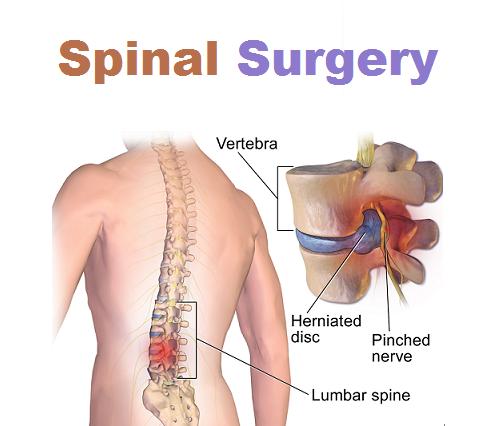Spinal Surgery
- Lumbar Microdiscectomy
- Lumbar decompression
- Lumbar Decompression and Fusion Surgery
- Anterior Cervical Spine Surgery(Anterior cervical Discectomy and Fusion)
- Posterior Cervical Spine Surgery(Posterior cervical foraminotomy, Posterior cervical laminectomy ± Fusion)
- Anterior Lumbar Interbody Fusion
- Scoliosis and Kyphosis Surgery (Anterior, Posterior or Combined approach)
- Craniocervical junction surgery (C1-C2 Fusion, Occipito-cervical fusion)
- Arnold Chiari Decompression
- Excision of Spinal Cord tumors
- Revision spinal surgery

We offer surgical treatment with international standards for various spinal disorders extending from the cranio-cervical junction to the lower lumbo-sacral spine. This includes the management of degenerative disorders in the cervical, thoracic and lumbar spine, fractures and dislocations at all levels of the spine, deformity (scoliosis and kyphosis) and infections in the spine.
The decision whether to go ahead with surgery or try non-operative treatment is taken in consultation with the patient and family members. Patients and relatives are explained in detailed regarding every aspect about the pathology the patient is suffering from, the expected outcomes and long term results. We allow enough time for a two-way discussion so that the patients and their families are fully aware of all aspects of the surgery and the post-operative stay in the hospital.
In order to provide individual attention to the patient after surgery, the patient may be advised to stay in the high-dependency unit overnight. A majority of the patients are encouraged to get out of bed and walk around on the first day after surgery (using a brace or corset), with the assistance of a physiotherapist. The surgical wound is closely monitored and when the surgical team is happy with the wound healing and when the patient is comfortable, he/she will be discharged from the hospital. A visit to the hospital is usually scheduled on the 8-10th day after surgery.
